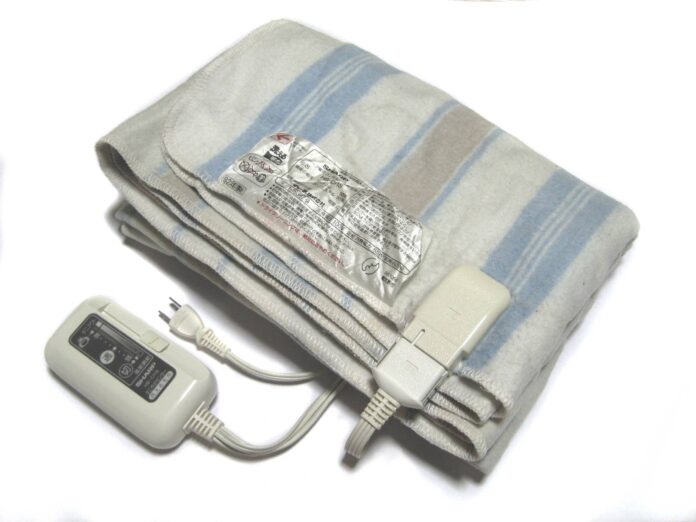With the UK heading towards the colder Autumn and Winter months, many households will be digging out old electrical blankets as the temperature drops. As well as being fairly inexpensive and energy efficient, electric blankets are portable, and often come with automatic timers, ‘turn-off’ switches, and temperature controls.
That being said, if not carefully monitored, electric blankets can pose a high risk of burn injuries and house fires, so experts from a leading electrical testing provider are urging individuals to stay vigilant and aware of the potential risks of the popular devices ahead of the UK cold snap arriving.
Dan Robson, Operations Manager at Hexo, offers guidance to users on how to ensure electric blankets do not pose any risk of fire or injury due to faults, how to test the safety of a product before using it, and when to avoid turning them on.
“A huge concern during this time of year is that people are noticing the shift in weather, and – in a bid to combat high energy prices – are turning to their older electric blankets at home without properly checking them for any signs of damage or fault.
“The wires found inside electric blankets are more susceptible to breakage after months, or even years, of being folded and stored away at the back of airing cupboards, or utility rooms.”
Below, Dan outlines some of key safety considerations those planning to use or buy a new blanket should remember to avoid electrical faults or injuries:
Check your blanket carefully before first use
First and foremost, check how old your electric blanket is. Any that are 10 years or older should be replaced even if they seemingly still in working condition. This is due to the fact that the internal elements of the blanket will start to deteriorate by this point due to its age and usage.
For newer blankets, before switching on, be sure to check for any loose wires, and check for any displaced or damaged heating elements by holding up to the light. Any blankets with noticeable damage or cracks should be disposed of.
For additional peace of mind, electric blankets should ideally be tested every 2 years by a qualified electrician.
Purchase an electric blanket that has been safety checked
While it may be tempting to go for a more affordable option to keep winter costs down, all electric blankets purchased should carry the British Standard Kitemark, as well as the British Electrotechnical Approvals Board (BEAB) symbol on them.
Be wary of how you sleep
Electric blankets should be used for short periods of time, and should never be left switched on overnight. If you are extremely tired or a very deep sleeper, be wary of ways to ensure this does not occur.
Similarly, if you have consumed alcohol and are therefore more likely to fall into a heavy sleep, the risk of injury is heightened, so avoid using your blanket.
Once your blanket is switched on, avoid consuming liquids around it, and never use a hot water bottle alongside it, in order to avoid any leaks and potential electrical water damage,
Store and clean electric blankets correctly
Equally as important as how an electrical blanket is used while switched on, is how it’s stored and kept during warmer periods.
Never fold your blanket, as this can cause internal damage to the internal wiring. Ideally, a blanket should be hung up to avoid any potential wire damage, butif this isn’t an option, rolling it up gently with minimal creases will suffice.
When it comes to cleaning your electric blanket, be sure to refer to the manufacturer’s care instructions beforehand. Most newer models can be put in the washing machine nowadays, but it’s important to use a gentle wash in order to minimise any twisting of the interior wiring or heating components during the cycle.
Be careful of who is using an electric blanket
There are certain groups of people who should refrain from using electric blankets during cold weather periods. These include pregnant women, the elderly, and infants and young children under the age of 7, or those who are not mature enough to use the device correctly.
There are also certain health conditions that could pose a risk to users of electric blankets. Those suffering with diabetes or nerve disorders, such as carpal tunnel syndrome or peripheral neuropathy, should consult with their GP or seek further medical advice before use.
Help keep news FREE for our readers
Supporting your local community newspaper/online news outlet is crucial now more than ever. If you believe in independent journalism, then consider making a valuable contribution by making a one-time or monthly donation. We operate in rural areas where providing unbiased news can be challenging. Read More About Supporting The West Wales Chronicle

























